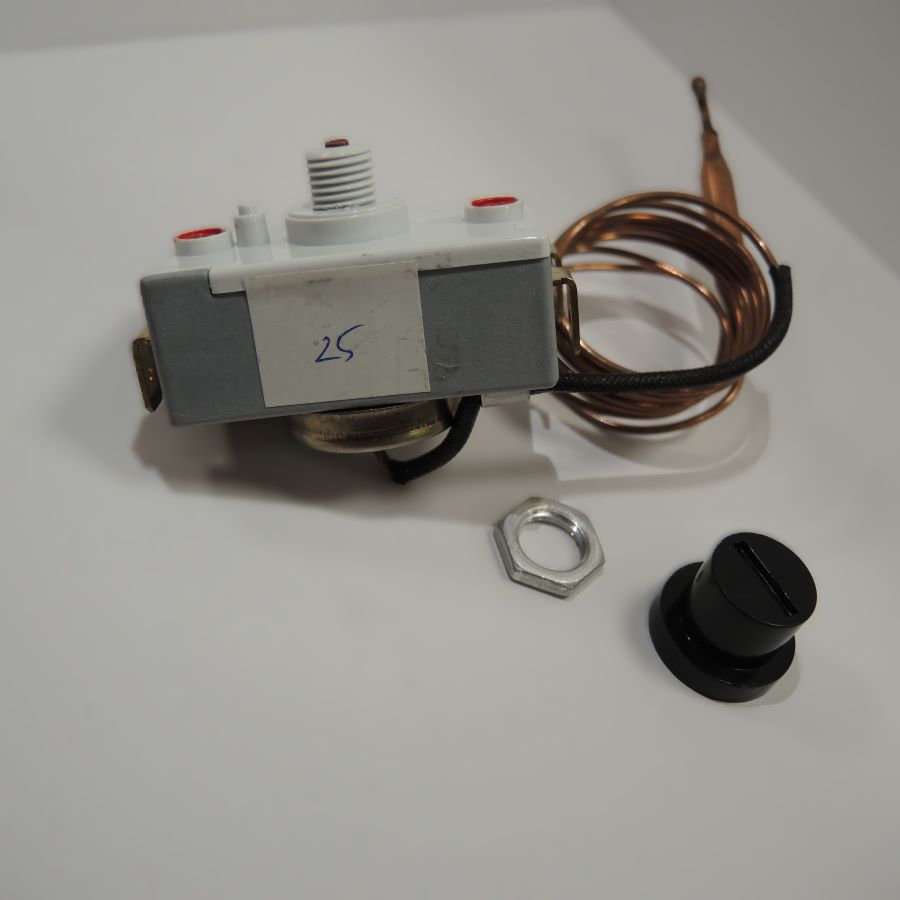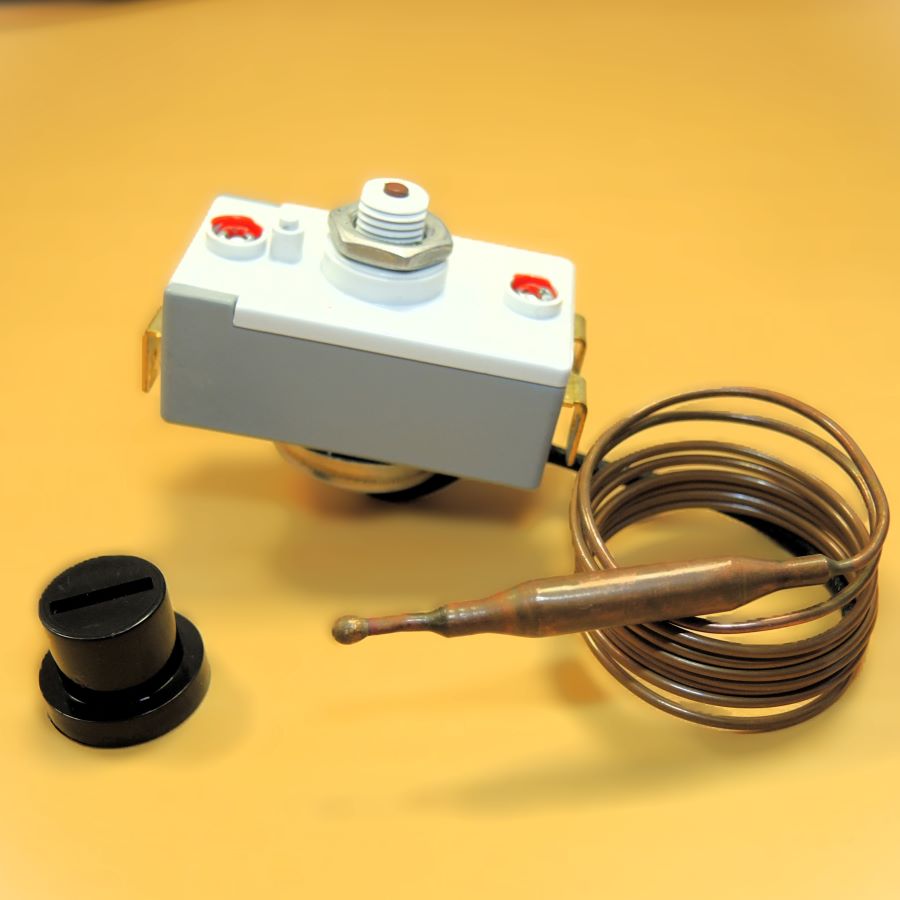WQB – DPST bipolar capillary limiting thermostat
DPST bipolar capillary limiting thermostat with manual reset and intrinsic safety (opens the contacts in case of breakage or loss of the capillary sensor or the bulb).
The thermostat automatically opens the main contacts when the sensor reaches the set temperature value, in order to avoid dangerous overheating; subsequently, once the faulty thermoregulation system has been repaired, the thermostat can be reset manually.
Possible calibration ranges: from +40°C up to +160°C
Main applications
Professional coffee machines, electric and gas boilers, electric storage water heaters, small household appliances, dryers and any other application where a manual reset maximum temperature safety thermostat with bipolar opening and intrinsic safety is required.
DPST bipolar capillary limiting thermostat with manual reset and intrinsic safety (opens the contacts in case of breakage or loss of the capillary sensor or the bulb).
The thermostat automatically opens the main contacts when the sensor reaches the set temperature value, in order to avoid dangerous overheating; subsequently, once the faulty thermoregulation system has been repaired, the thermostat can be reset manually.
Possible calibration ranges: from +40°C up to +160°C
Main applications
Professional coffee machines, electric and gas boilers, electric storage water heaters, small household appliances, dryers and any other application where a manual reset maximum temperature safety thermostat with bipolar opening and intrinsic safety is required.
| Contact range: | 11-12 20A @ 250 VAC 21-22 20A @ 250 VAC |
| Contact configuration: | DPST |
| VDE certification for: | 10,000 cycles (20A @ 250VAC) |
| Minimum current: | 300 mA without gold contacts |
| Isolation: | >100 Mohms |
| Max temp. around the body: | T85 |
| Max temp. around the bulb: | +15% of the trip value |
| Dielectric strength: | AC 2000V 1 min |
| Connections: | faston 6.3×0.8 |
| Field of work: | 40 – 160°C |
| Reset: | Manual |
| Tolerance: | From ±2 to 12°C depending on the working range |
| Temperature gradient: | From 0.5 to 1 °C/min depending on the model |







